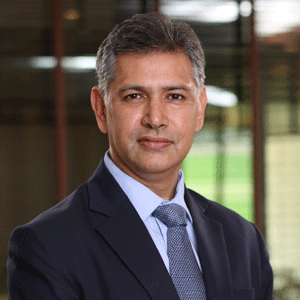THANK YOU FOR SUBSCRIBING

Ecquaria Technologies: Transitioning from e-government to digital government

 Dr. Foong Wai Keong, CEO
Dr. Foong Wai Keong, CEOIn an interview with Ecquaria’s CEO Dr. Foong Wai Keong, he spoke about challenges governments faced during digital transformation. “Traditionally, government systems are large and monolithic systems. These legacy systems are operational, but they cannot keep up with rising expectations and digital disruption by the private sectors.” The long deployment cycles and slow infrastructure provisioning are major hurdles and Ecquaria is well-positioned to tackle the challenges. Wai Keong outlined three steps for successful digital government transformation:
Step 1: Implement Smart Infrastructure
The company’s Ecquaria Government Platform (EGP) is a purpose-built platform where government agencies can deploy citizen-centric services and co-create with citizens. Ecquaria’s platform has a microservices architecture, where each microservice does one thing really well. The loosely-coupled microservices can be scaled and deployed independently without affecting one another.
“It is a full stack with hardware that provides digital government out-of-the-box, ready to be shipped anywhere around the world.”
The company introduced EGP with a client for the end-to-end management of court cases. Individual courtroom deals with different types of cases which vary in processes. With traditional monolithic system, upgrading a courtroom services would mean shutting down the entire system, impacting everybody. However, with EGP, each courtroom is designated a microservice. When a particular courtroom has upgrades, it is updated in isolation, without disrupting other courtroom processes. Over time, EGP is automatically scaling to meet the increasing transactions without any problems.
Step 2: Ingrain Disruptive Culture
Digital disruption requires a mindset shift. Ecquaria dedicated a space to experiment, create and develop new ideas. Called EcQube, it advocates the willingness to try, courage to overcome failures and character to persevere.
Digital Services Lab is an experiential lab under EcQube where customers can learn how to create and deploy cloud-native digital services with frictionless release. DX Workshop puts citizens first, questioning if the root issue is being addressed. It takes customers through the process—from identifying the problem, creating ideas around how to solve it without identifying any technology or way of solving the problem up front.
Step 3: Transform with Data Driven Decisions
In one of the smart city project that focused on urban planning, Ecquaria combined multiple forms of anonymized data to identify emerging patterns of routes and population density changes. The insight is used in urban planning and transport system optimization. Wai Keong says, “The future is about data.” It opens up huge possibilities, especially in the area of Machine Learning where it can be used for anomaly detection (e.g. fraud), risk profiling or prediction of case outcomes. Natural Language Processing can be used for the cognitive analysis of unstructured data to unlock valuable insights.
“Reality is not far off. There is great progress and increasingly, governments are opening up data and unlocking digital assets. We see great potential and will continue investing heavily in the digital government space and Machine Learning, helping governments transform and improve citizens’ lives.”
The company introduced EGP with a client for the end-to-end management of court cases. Individual courtroom deals with different types of cases which vary in processes. With traditional monolithic system, upgrading a courtroom services would mean shutting down the entire system, impacting everybody. However, with EGP, each courtroom is designated a microservice. When a particular courtroom has upgrades, it is updated in isolation, without disrupting other courtroom processes. Over time, EGP is automatically scaling to meet the increasing transactions without any problems.
Step 2: Ingrain Disruptive Culture
Digital disruption requires a mindset shift. Ecquaria dedicated a space to experiment, create and develop new ideas. Called EcQube, it advocates the willingness to try, courage to overcome failures and character to persevere.
Digital Services Lab is an experiential lab under EcQube where customers can learn how to create and deploy cloud-native digital services with frictionless release. DX Workshop puts citizens first, questioning if the root issue is being addressed. It takes customers through the process—from identifying the problem, creating ideas around how to solve it without identifying any technology or way of solving the problem up front.
Step 3: Transform with Data Driven Decisions
In one of the smart city project that focused on urban planning, Ecquaria combined multiple forms of anonymized data to identify emerging patterns of routes and population density changes. The insight is used in urban planning and transport system optimization. Wai Keong says, “The future is about data.” It opens up huge possibilities, especially in the area of Machine Learning where it can be used for anomaly detection (e.g. fraud), risk profiling or prediction of case outcomes. Natural Language Processing can be used for the cognitive analysis of unstructured data to unlock valuable insights.
“Reality is not far off. There is great progress and increasingly, governments are opening up data and unlocking digital assets. We see great potential and will continue investing heavily in the digital government space and Machine Learning, helping governments transform and improve citizens’ lives.”

I agree We use cookies on this website to enhance your user experience. By clicking any link on this page you are giving your consent for us to set cookies. More info













